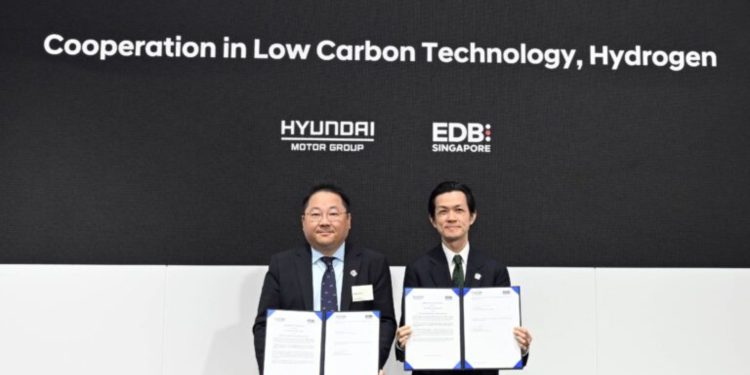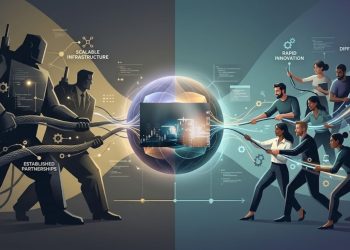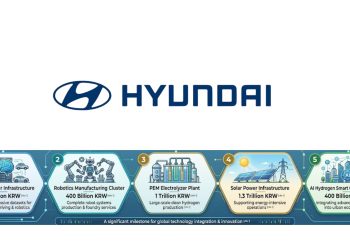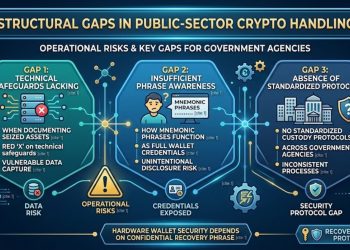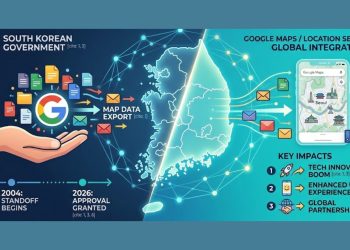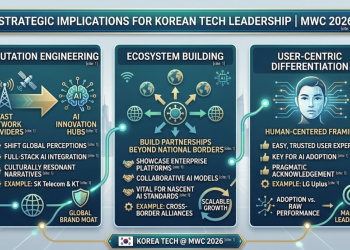The partnership marks a key step in aligning Korea’s hydrogen ambitions with Singapore’s Green Plan 2030 and regional decarbonization efforts.
Hyundai Motor Group (HMG) has signed a Memorandum of Understanding (MoU) with Singapore’s Economic Development Board (EDB) to explore and develop low-carbon technologies, with a strong emphasis on hydrogen energy systems. The collaboration aims to fast-track research, testing, and commercial deployment of sustainable energy technologies across Asia.
The partnership builds upon Hyundai’s existing ties with the EDB through the Hyundai Motor Group Innovation Center Singapore (HMGICS) — the automaker’s first global open innovation hub. This facility has already served as a testbed for electric vehicles and smart manufacturing; now, it is evolving into a hub for clean energy and hydrogen applications that can support Hyundai’s global decarbonization roadmap.
Singapore: A Key Partner in Hydrogen Transition
The collaboration aligns with Singapore’s Green Plan 2030, which sets ambitious national targets for carbon reduction, clean transport, and green energy. As part of the new MoU, Hyundai and the EDB will explore collaborations with local companies and startups, particularly in areas related to hydrogen infrastructure, distribution, and efficiency.
One of the key focus areas under discussion is the use of Singapore’s pipeline network for hydrogen transport — a move that could dramatically improve supply chain efficiency and reduce the logistical challenges associated with hydrogen delivery. This approach, if realized, would make Singapore an early model for urban-scale hydrogen integration in Asia.
Through these initiatives, Hyundai Motor Group is positioning itself not just as an automaker, but as a leader in the broader clean energy value chain — encompassing hydrogen production, storage, distribution, and end-use applications.
Strategic Vision: Hydrogen as the Next Growth Engine
Hydrogen has become a central pillar of Hyundai’s sustainability strategy. The company views it as a key enabler of net-zero mobility, bridging clean transportation with renewable energy production and industrial use.
“We are excited to collaborate with the EDB to explore new growth areas, including the development of low-carbon technologies,” said Jaeha Park, Vice President and Head of Global Hydrogen Business Sub-Division at Hyundai Motor Group.
“By bringing our cutting-edge expertise in hydrogen technology, this partnership represents a significant step forward in creating a clean energy future for Singapore. We look forward to driving impactful solutions that demonstrate the potential of hydrogen as a cornerstone of global sustainability.”
EDB’s Role: Building the Ecosystem
Under the new MoU, the Singapore Economic Development Board will serve as a strategic facilitator, helping Hyundai connect with research institutions, energy providers, and local innovation partners.
According to Zheng Jingxin, Vice President and Head of Mobility at the EDB:
“This MoU builds on the strong partnership between EDB and Hyundai Motor Group. The collaboration is closely aligned to Singapore’s commitment to develop a low-carbon economy by supporting companies on sustainable technology development. This will strengthen Singapore’s position as a global innovation hub within Hyundai Motor Group’s network.”
The EDB’s involvement ensures that this partnership is not limited to technology development, but extends to policy alignment, ecosystem building, and talent development — essential components for a sustainable hydrogen economy.
Hyundai’s Expanding Hydrogen Strategy
For Hyundai, the partnership with Singapore represents part of its mid- to long-term global hydrogen strategy. The Group is actively pursuing projects that integrate clean energy businesses and infrastructure development across Asia.
Its hydrogen roadmap focuses on:
- Scaling production and storage technologies for mobility and industrial sectors.
- Deploying hydrogen fuel systems in commercial fleets and public transport.
- Collaborating with regional governments to establish hydrogen supply chains.
HMGICS: From Smart Mobility to Energy Innovation
The Hyundai Motor Group Innovation Center Singapore (HMGICS) continues to serve as the focal point of Hyundai’s innovation in Southeast Asia. Initially conceived as a smart manufacturing and EV R&D hub, it now plays a key role in hydrogen research and other low-carbon initiatives.
HMGICS embodies Hyundai’s global innovation model: leveraging Singapore’s regulatory flexibility, advanced digital infrastructure, and sustainability vision to test scalable clean-tech solutions before global rollout. The facility also symbolizes Hyundai’s shift from being a vehicle manufacturer to an energy and technology integrator, where the boundaries between automotive and clean energy innovation increasingly overlap.
Analysis: Why This Partnership Matters
The Hyundai–EDB partnership signals an important regional inflection point for clean energy collaboration in Asia. Singapore brings policy stability, urban infrastructure, and global connectivity, while Hyundai contributes technological depth and hydrogen experience. Together, they form a prototype for how public–private partnerships can accelerate the hydrogen economy.
If successful, this initiative could help establish:
- A regional framework for hydrogen distribution and logistics,
- A testing model for carbon-neutral urban infrastructure, and
- A replicable collaboration template between industrial groups and innovation-driven economies.
As hydrogen gains global traction, such collaborations will be critical in turning ambition into implementation. Hyundai’s engagement with Singapore demonstrates that energy transformation is as much about partnerships as it is about technology.
Conclusion: Toward an Integrated Clean Energy Future
The MoU between Hyundai Motor Group and Singapore’s EDB is more than a research partnership — it’s a strategic alignment of two innovation ecosystems. For Hyundai, it reinforces its leadership in hydrogen technology and its ability to adapt its automotive expertise to broader energy applications. For Singapore, it strengthens its role as a regional hub for sustainable technology, advancing its national decarbonization agenda.
Both parties are betting on the same principle: that collaboration across sectors and borders will define the next era of clean energy growth. By using hydrogen as a bridge between mobility, infrastructure, and energy, Hyundai and Singapore are not just preparing for a low-carbon future — they are building it, one innovation at a time.

